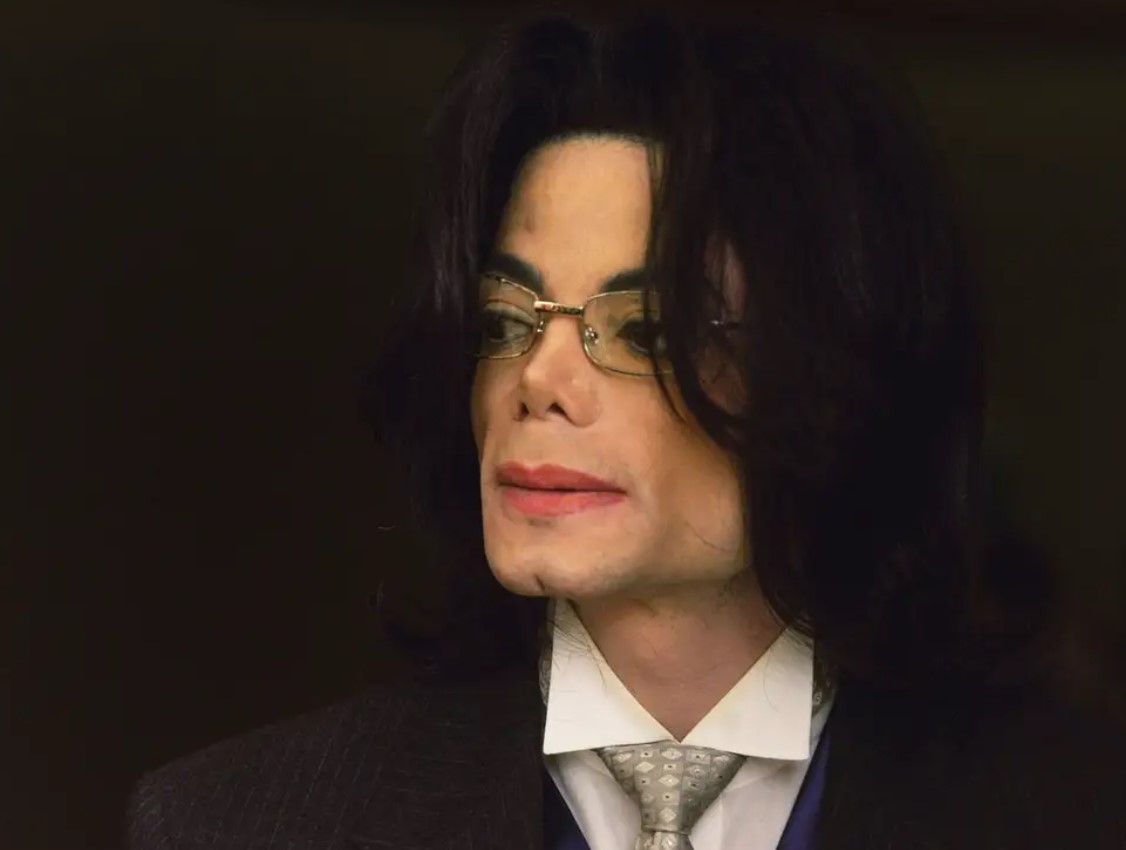Michael Jackson, often hailed as the “King of Pop,” remains one of the most significant cultural figures of the 20th century. His death on June 25, 2009, marked the end of an era and the beginning of a complex legal saga centered around his substantial legacy, including inquiries into Michael Jackson net worth at death. Known for his revolutionary music and groundbreaking performances, Jackson’s influence extended beyond the entertainment industry, shaping the landscape of global pop culture. His untimely demise at the age of 50 left fans worldwide in mourning and sparked widespread media attention.

In the wake of his passing, the Estate of Michael Jackson was established to manage his assets and oversee the income generated from his extensive catalog of music, performance rights, and other intellectual properties. This legal entity was structured based on Jackson’s last will, filed by attorney John Branca at the Los Angeles County courthouse on July 1, 2009. The will, signed on July 7, 2002, named Branca and Jackson’s longtime accountant, John McClain, as co-executors. These executors were tasked with not only handling the singer’s complex financial affairs but also preserving his artistic legacy.
The estate’s primary responsibility was to administer Jackson’s assets in accordance with the Michael Jackson Family Trust, an arrangement amended on March 22, 2002. While the specifics of the trust remain confidential, it is known that it encompasses all of Jackson’s assets, including his iconic Neverland Ranch and his lucrative 50% stake in the Sony/ATV Music Publishing catalog. The trust also outlines provisions for the guardianship of his three children, ensuring their care and financial security.
The establishment of the Estate of Michael Jackson was a critical step in safeguarding the singer’s financial interests and continuing his philanthropic endeavors, as stipulated in his will. It serves as a poignant reminder of the vast influence Jackson held and the ongoing relevance of his contributions to music and society.
| Aspect | Details |
|---|---|
| Person | Michael Jackson, “King of Pop” |
| Significance | Influential cultural figure of the 20th century, shaped global pop culture |
| Death | June 25, 2009; age 50; marked the start of legal issues regarding his estate |
| Estate Management | Estate of Michael Jackson, managed assets, overseen by John Branca and John McClain as co-executors |
| Legal Documentation | Last will filed on July 1, 2009, in LA County courthouse; originally signed July 7, 2002 |
| Financial Assets | Includes Neverland Ranch, 50% stake in Sony/ATV Music Publishing |
| Trust | Michael Jackson Family Trust; amended March 22, 2002; details remain confidential but cover assets and children’s care |
| Purpose of the Estate | Administer assets as per the Family Trust, preserve artistic legacy, continue philanthropic endeavors |
Contents
Establishment and Structure of the Estate
The establishment of the Estate of Michael Jackson began shortly after his untimely death on June 25, 2009, when his attorney, John Branca, filed Jackson’s last will in the Los Angeles County courthouse on July 1, 2009. The will, signed on July 7, 2002, is a pivotal document that outlines the management and distribution of Jackson’s assets. It appointed John Branca and John McClain, a longtime family friend and music industry executive, as co-executors. These two individuals were tasked with the significant responsibility of managing the estate’s affairs and ensuring the fulfillment of Jackson’s wishes as stated in his will.

Central to the will is the Michael Jackson Family Trust, amended on March 22, 2002. The trust was designed to be the main recipient of all his assets and serves as the mechanism through which his beneficiaries, including his children and mother, receive financial support. The trust’s details, although not made public, include provisions for the care of his children and the distribution of his wealth. Significant assets transferred into the trust include Jackson’s 50% stake in Sony/ATV Music Publishing, his ownership of the Neverland Ranch, and various other personal and intellectual properties.
The Neverland Ranch, located in Santa Barbara County, California, was one of Jackson’s most famous possessions, known for its elaborate theme park, zoo, and as the singer’s home for many years. Jackson’s share in Sony/ATV Music Publishing, which includes a vast library of Beatles’ songs, is another major asset. These assets symbolize not just significant financial value but also Jackson’s deep connection to the music and entertainment industry.
| Event | Details |
|---|---|
| Estate Establishment | Started shortly after Michael Jackson’s death on June 25, 2009. Last will filed by attorney John Branca on July 1, 2009. |
| Will Details | Signed on July 7, 2002. Appoints John Branca and John McClain as co-executors to manage estate affairs and fulfill Jackson’s wishes. |
| Michael Jackson Family Trust | Amended on March 22, 2002. Main recipient of all assets, providing financial support to children and mother. Details private, includes provisions for children’s care and wealth distribution. |
| Significant Assets | Includes 50% stake in Sony/ATV Music Publishing, Neverland Ranch, and various personal and intellectual properties. |
| Key Properties | Neverland Ranch in Santa Barbara, known for its theme park and zoo; substantial music rights including Beatles’ songs catalog. |
Financial Overview and Transactions
At the time of his death, Michael Jackson’s financial situation was complex. The Associated Press reported in 2007 that Jackson had a net worth of approximately $236.6 million. However, this figure was contrasted starkly against his debts totaling $331 million, reflecting the financial struggles he faced, including the maintenance of the Neverland Ranch and litigation costs. Despite these challenges, Jackson’s assets remained formidable, primarily due to his music catalog and rights ownership.

After his death, the estate’s executors undertook several major financial transactions to stabilize and enhance the financial health of his holdings. A significant move was the sale of Jackson’s stake in Sony/ATV Music Publishing. In September 2016, a deal was finalized in which Sony agreed to buy Jackson’s share for $750 million, a testament to the enduring value of his investments in music publishing.
Another major transaction was the sale of the Jackson estate’s 10% stake in EMI Music Publishing to Sony/ATV in July 2018 for $287.5 million. This sale was part of a larger deal where Sony/ATV acquired EMI Music Publishing, thereby consolidating a significant portion of the world’s music publishing assets under one roof.
These strategic financial moves have had a profound impact on the estate’s earnings. In 2016, the estate earned $825 million, the highest annual earnings for any celebrity, deceased or alive, as recorded by Forbes. This record was largely due to the sale of the Sony/ATV catalog. The consistent management and strategic decisions by the estate’s executors have allowed Jackson’s legacy to generate substantial income even after his death, with his estate earning over $100 million annually for several years in a row.
These financial strategies not only reflect a keen understanding of asset management but also underscore the ongoing relevance and profitability of Michael Jackson’s artistic legacy. The estate’s ability to generate record-breaking earnings posthumously is a testament to Jackson’s enduring influence in the music industry and his savvy investments during his lifetime.
| Aspect | Details |
|---|---|
| Financial Situation at Death | Net worth of $236.6 million against debts of $331 million in 2007. Assets included significant music catalog and rights ownership. |
| Major Transactions Post-Death | Sold Michael Jackson’s stake in Sony/ATV Music Publishing to Sony for $750 million in September 2016. Sold 10% stake in EMI Music Publishing to Sony/ATV for $287.5 million in July 2018. |
| Estate Earnings | Generated $825 million in 2016, the highest annual earnings for any celebrity, deceased or alive, according to Forbes. Consistently earns over $100 million annually. |
| Impact of Financial Management | Strategic financial decisions posthumously reflect keen asset management, underscore profitability and ongoing relevance of Jackson’s legacy. |
Guardianship and Family Dynamics
Following Michael Jackson’s death, the guardianship of his three children became a primary concern addressed in his will. He designated his mother, Katherine Jackson, as the guardian of Prince, Paris, and Blanket. The will stipulated that if Katherine was unable or unwilling to serve, the guardianship would pass to Diana Ross, a close family friend and mentor to Michael. This decision underscored Jackson’s trust in his family and close associates to raise his children in his absence, reflecting his desires for their care and upbringing within a familiar, loving environment.

However, the smooth execution of this plan was challenged by internal family dynamics and public controversies. In 2012, a highly publicized dispute erupted when several of Jackson’s siblings contested the will’s validity, claiming it was a forgery. This contention stemmed partly from their exclusion from the will and led to a brief, though intense, media frenzy that questioned the executors’ legitimacy and the overall management of the estate. The situation escalated when Katherine Jackson was erroneously reported missing, adding to the media spectacle and family turmoil. This dispute was resolved when Jermaine Jackson retracted his signature from the letter challenging the estate, helping quell the public dispute and reaffirming the will’s authority.
T.J. Jackson, son of Tito Jackson, was later appointed as co-guardian for the children, stabilizing the guardianship arrangement. This move helped solidify the structure set forth by Michael Jackson, ensuring his children’s welfare amidst ongoing family challenges and media scrutiny.
| Aspect | Details |
|---|---|
| Guardianship Plan | Michael Jackson designated his mother, Katherine Jackson, as guardian of his three children. Diana Ross was named as an alternative guardian. |
| Family Dynamics and Controversies | In 2012, several of Jackson’s siblings contested the will, claiming forgery and exclusion, leading to media frenzy and disputes over estate management. |
| Media Issues | Katherine Jackson was erroneously reported missing, exacerbating the public and media controversy surrounding the estate. |
| Resolution and Co-guardianship | Jermaine Jackson retracted his challenge to the will, stabilizing the situation. T.J. Jackson was later appointed as co-guardian to further stabilize guardianship. |
Legal Challenges and IRS Disputes
The administration of Michael Jackson’s estate also faced significant legal challenges, particularly from the Internal Revenue Service (IRS). The IRS and the estate’s executors had vastly different assessments of the estate’s value, particularly concerning Jackson’s posthumous earnings potential and the value of his likeness. Initially, the estate valued Jackson’s likeness at just over $2,000, while the IRS valued it at more than $434 million, reflecting a stark contrast in perceived marketability and potential future earnings from Jackson’s image.
Another major area of contention involved Jackson’s interests in various music rights, including his share in the Jackson 5 master recordings and his stake in Sony/ATV Music Publishing. The IRS also disputed the value of other assets, including the singer’s ownership in a trust that includes Beatles’ songs, assessing these at much higher values than those declared by the estate. These disagreements led to a prolonged legal battle, culminating in a series of court cases and negotiations that sought to determine the accurate valuation of Jackson’s assets for tax purposes.
In 2021, the U.S. Tax Court issued a crucial ruling that largely favored the estate. The court determined that the combined value of the estate was significantly lower than the IRS’s assessment, ruling it at $111.5 million. Moreover, the court valued Jackson’s likeness at $4 million, far from the IRS’s initial valuation, underscoring the complexities involved in assessing the market value of celebrity images and rights posthumously. The court also imposed penalties for gross valuation misstatements but acknowledged the challenges in determining the precise value of such unique assets.
This ruling was a significant victory for the Estate of Michael Jackson, as it not only affirmed the estate’s lower valuations but also set precedents for how celebrity estates might be valued and taxed in the future. The legal resolution helped stabilize the estate’s financial standing and ensured more predictable management of Jackson’s posthumous earnings and legacy.
| Issue | Details |
|---|---|
| Valuation Dispute with IRS | The estate valued Michael Jackson’s likeness at just over $2,000, whereas the IRS valued it at over $434 million. Similar disputes arose over the value of his music rights and other assets. |
| Legal Battles | Prolonged court cases and negotiations occurred to resolve the discrepancies in asset valuation between the estate and the IRS. |
| 2021 Tax Court Ruling | The U.S. Tax Court ruled in favor of the estate, valuing the combined assets at $111.5 million, much lower than the IRS’s assessment. Jackson’s likeness was valued at $4 million. |
| Impact of Ruling | This ruling was a significant victory for the estate, setting precedents for the valuation and taxation of celebrity estates, and stabilizing the estate’s financial standing. |
Impact and Legacy
The Estate of Michael Jackson has played a pivotal role in preserving and enhancing the legendary artist’s legacy since his passing in 2009. Through careful management and strategic financial decisions, the estate has ensured that Jackson remains one of the top-earning deceased celebrities worldwide. For instance, deals like the sale of his share in Sony/ATV and the subsequent earnings from music rights have significantly contributed to the estate’s income, reaffirming Jackson’s financial genius and foresight in life.

The estate’s influence extends beyond mere financial management; it has also been crucial in maintaining and promoting Jackson’s artistic legacy. Initiatives like the release of posthumous albums, the production of the “Michael Jackson ONE” Cirque du Soleil show, and various other multimedia projects have kept his music and persona in the public eye. These endeavors not only honor his memory but also introduce his art to new generations, ensuring that his contributions to music and dance are celebrated and studied for years to come.
Moreover, the estate has handled several sensitive aspects of Jackson’s legacy, including the management of his public image amidst various controversies and legal challenges. By navigating these complexities with a focus on honoring Jackson’s artistic intentions and humanitarian efforts, the estate has played a crucial role in shaping the narrative around his legacy.
| Aspect | Details |
|---|---|
| Financial Management | The Estate of Michael Jackson has made strategic financial decisions, such as the sale of his share in Sony/ATV, contributing significantly to its income and reinforcing Jackson’s financial acumen. |
| Artistic Legacy | The estate has released posthumous albums and produced multimedia projects like the “Michael Jackson ONE” Cirque du Soleil show, keeping Jackson’s music and persona prevalent in public discourse. |
| Public Image Management | The estate manages Jackson’s image amid controversies and legal challenges, focusing on preserving his artistic and humanitarian legacy. |
The Estate of Michael Jackson exemplifies the intricate and multifaceted nature of managing a celebrity estate, particularly one as significant and complex as that of Michael Jackson. From legal battles with the IRS over asset valuation to handling family dynamics and guardianship issues, the estate’s executors have faced numerous challenges. Despite these hurdles, their management strategies have significantly impacted preserving Jackson’s artistic and philanthropic legacies.
Financially, the estate has set records for posthumous earnings, demonstrating the enduring appeal and value of Michael Jackson’s work. The strategic sales of music rights and careful asset management have not only stabilized the estate’s finances but also maximized the ongoing income that supports Jackson’s children and philanthropic projects in line with his wishes.
Artistically, the estate has been instrumental in curating and maintaining Jackson’s status as a global pop icon. Through various projects and partnerships, it has ensured that his influence continues to resonate within the music industry and among fans worldwide. This ongoing influence underscores the estate’s success in managing Jackson’s artistic legacy in a manner that respects his original work while adapting to evolving market dynamics.
Overall, the Estate of Michael Jackson offers a profound case study on the complexities involved in managing the legacy of a global superstar. The successes and challenges faced by the estate highlight the importance of careful planning, strategic decision-making, and sensitive handling of both financial and personal aspects of celebrity legacies. As the estate continues to navigate the future, it serves as a custodian not just of Michael Jackson’s financial assets, but more importantly, of his enduring legacy as an artist and humanitarian. This dual role ensures that Jackson’s influence will continue to be felt not only in the realms of music and dance but also in the charitable endeavors that were close to his heart.

